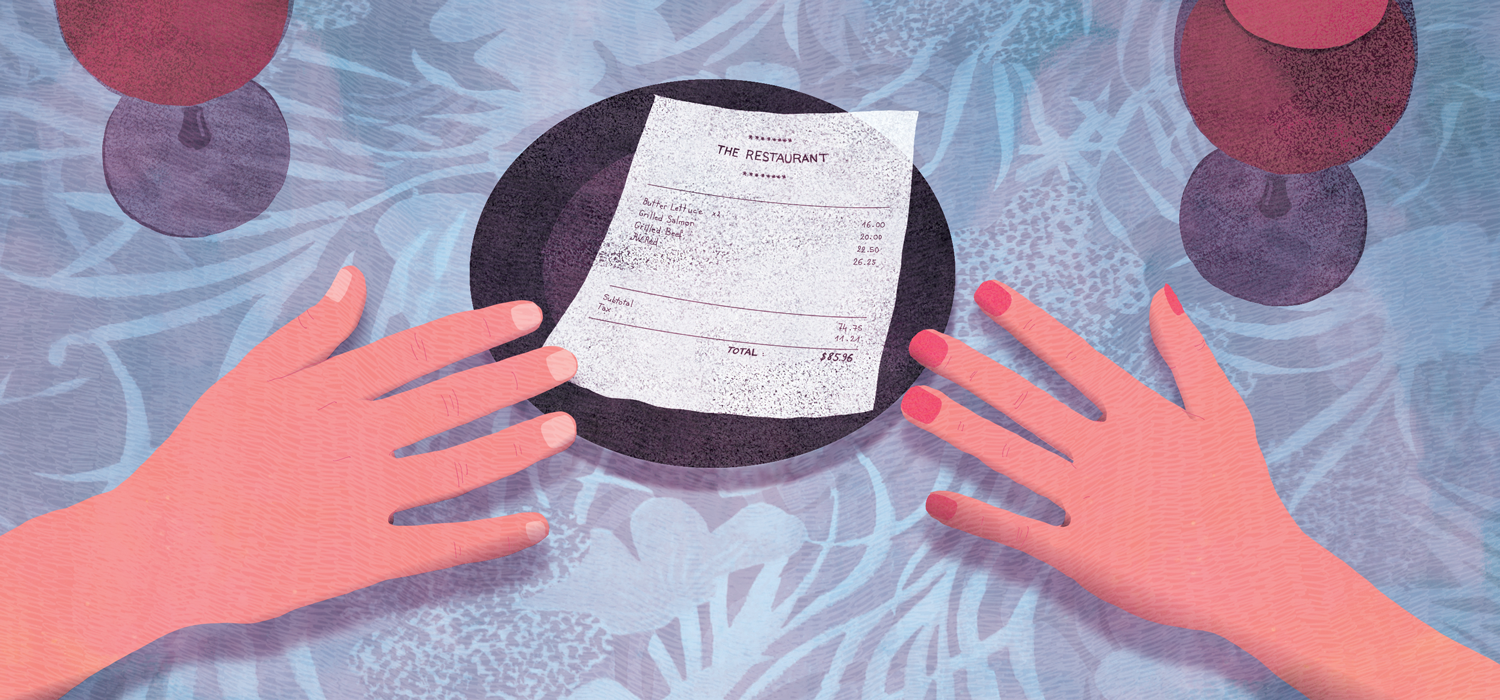Many of you may have seen this year’s Valentines’ episode of First Dates. It was full to bursting with perfectly matched couples, and enough first date butterflies to make me and my housemates all shed a tear – for the most part. However, this largely successful episode was undercut by a scene of the utmost awkwardness, when Steve suggested that he and his date, Elaine, “go Dutch”.
This idea of going Dutch is one that upends accepted notions of dating etiquette, by having the man and the woman split the bill equally between them. I was aware that this was something that still had rather a large stigma attached to it in our society’s dating world. But still, the fact that Steve’s refusal to pay for the whole date made headlines in national newspapers is simply baffling to me.
What I don’t understand is the fact that this expected dating arrangement accepts a highly misogynistic idea that the man is going to have more money than the woman, and so should pay for her. Firstly, this is such a frustratingly outdated example of heteronormative, patriarchal, and hyper-masculine standards latching onto us, while we refuse to shake them off. But even beyond that, it acts as an inconsiderate, preconceived assumption of each individuals’ socioeconomic background, and ignores the fact that money is not an easy-going topic for a lot of people.
It is not that I believe that the arrangement itself is an issue; just the normalisation of it. As an example, if whoever initiated the date decided on an extortionately priced restaurant without consulting their dating partner, then it would be fair that the burden of paying more should fall onto their shoulders. But still, I’m a proponent of discussing this arrangement before the card machine is whipped out, even if one partner was overzealous enough to book something pricey, without consideration for what the other would want.
However, in the case of Steve and Elaine on First Dates, the situation was a blind date that both agreed to go on, to a restaurant that neither had any control over. If nowhere else, then certainly in this case it doesn’t seem to be the fairest solution that one party should have to pay for the whole meal, unless they genuinely wanted and offered to.
I have seen some criticisms of Steve’s handling of the situation which suggest that he should have discussed the idea of going Dutch with Elaine prior to the bill arriving, which does make sense. But what I still don’t like is the idea that payment should only be discussed if it is going to deviate from this expectation. It is my belief that accepted dating etiquette should lie in the discussion of how the couple are going to pay for the date, in whatever arrangement they choose. Not in an assumption that one person can and will pay for the whole thing.
I know that some want to hold onto these sorts of chivalrous behaviours, but honestly, in my opinion, chivalry is dead for a reason. These outdated modes by which a man is supposed to woo a woman seem disingenuous, incentivised, and to exist based upon an accepted idea that the man holds all the power in the situation, from things like their financial status, to where a date takes place.
Usually, I’m all for someone who is undermined by the patriarchy squeezing whatever benefit they can from it. But, in this case, the dynamic resembles far too closely some archaic courting ritual, in which a couple’s relationship is established as fundamentally unequal from the outset.
Aiden Alexander Wynn
(Image courtesy of Medium)

